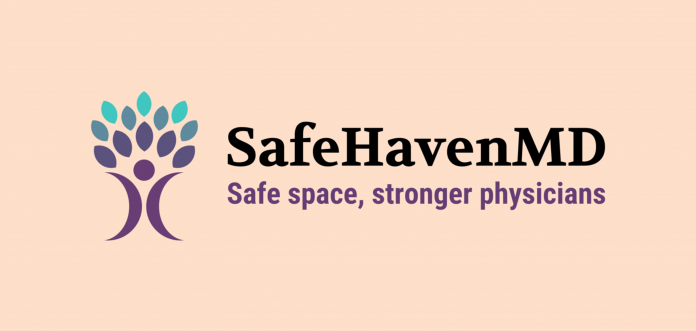Each September, Suicide Prevention Month brings much-needed attention to mental health and the people most at risk. The focus often falls on veterans, first responders, and law enforcement, professions marked by immense stress and little margin for error. Yet, one equally vulnerable group remains: physicians.
Doctors carry extraordinary responsibilities, from life-or-death decisions to relentless schedules, and the toll is showing. Research reveals that physicians die by suicide at rates 1.4 to 2.3 times higher than the general population. Each year, the U.S. loses the equivalent of an entire medical school class, 300 to 400 physicians, to suicide. Nearly half of doctors report symptoms of burnout, one in five meet criteria for depression, and as many as 15% will experience substance use disorder during their careers.
“These numbers are not abstractions,” says Dr. Nishant Patel, founder of SafeHavenMD, a support and guidance center made for physicians, by physicians. “They represent colleagues, mentors, and caregivers we depend on every day. If we don’t protect our physicians, we risk losing both them and the care for patients who depend on them.”
The crisis is only worsened by the looming physician shortage. The Association of American Medical Colleges projects the U.S. will face a shortfall of 37,800 to 124,000 physicians by 2034. This creates a dangerous cycle: fewer doctors means heavier workloads, which leads to more burnout, and in turn, more attrition.
“This shortage goes beyond numbers and statistics. It becomes a public safety concern,” Dr. Patel explains. “Every doctor who leaves early means thousands of patients lose access to care.”
Traditional support systems aren’t often equipped to meet the needs. Nearly 40% of burned-out physicians avoid seeking help because of stigma or fear of licensing repercussions. Many distrust employer-based wellness programs, worried that what they share could be used against them. “Support has often been punitive, not protective of physicians,” Dr. Patel explains. “That fear alone costs lives.”
SafeHavenMD offers a new approach. Its model is built on anonymity, confidentiality, and peer-to-peer support embedded in care, empathy, and compassion. Doctors can connect with colleagues who have walked the same path, without worrying about professional consequences. The program also connects physicians to culturally competent care, individualized treatment, legal protections, and early intervention tools that catch burnout before it becomes a crisis.
“At SafeHavenMD, we’re offering personalized support before problems escalate,” Dr. Patel emphasizes. “Doctors can talk to someone who understands their experience without fear that it will end up in a report.”
This approach not only saves lives but also strengthens the workforce. Through prevention of early exits and supporting doctors in high-burnout specialties, SafeHavenMD helps preserve critical clinical capacity. “Institutions must focus on keeping their physicians mentally healthy and happy if they want the productivity that is being demanded of them,” Dr. Patel notes. “That’s what leads to lowered institutional costs, lower turnover rates, and more stability.”
Residents and new attendings, who face enormous workloads, imposter syndrome, and little mentorship, can find an important lifeline in SafeHavenMD’s peer network. “Every doctor we keep healthy and practicing means patients continue receiving the care they need,” Dr. Patel says.
The program’s impact is already evident. Many physicians who once considered leaving medicine often return, healthier and more grounded. Others who stepped away for treatment or family matters are rejoining the workforce with new resilience. Some even become volunteers with SafeHavenMD, sharing their journeys to help the next physician in crisis. “That’s how we change this culture, one story at a time,” Dr. Patel reflects.
This Suicide Prevention Month is a reminder that saving doctors is inseparable from saving lives. It is not only a moral obligation but also a public health necessity, as healthy doctors mean healthier patients, safer hospitals, and stronger communities.
Dr. Patel believes the call to action is embedded in enabling physicians to seek support without fear, in ensuring healthcare institutions adopt physician-led wellness programs that prioritize confidentiality, and policymakers reforming licensing and credentialing to make mental health care less punitive.
And most of all, the public must recognize that protecting doctors protects everyone. “Physician well-being is not a luxury,” Dr. Patel says. “It is the foundation of a functioning healthcare system. Saving doctors is saving lives.”
Dr. Patel insists that for those in crisis, confidential help does exist. Physicians and healthcare workers can access support through organizations like SafeHavenMD, which provide stigma-free, career-safe mental health resources. This September, the message is urgent and simple: no one should face this battle alone, especially not those who dedicate their lives to saving others.
“That’s the main crux, I believe,” Dr. Patel says, “understanding that everyone is human. Not superhuman. Not even physicians. And when their well-being metrics improve, improved public health will follow.”


